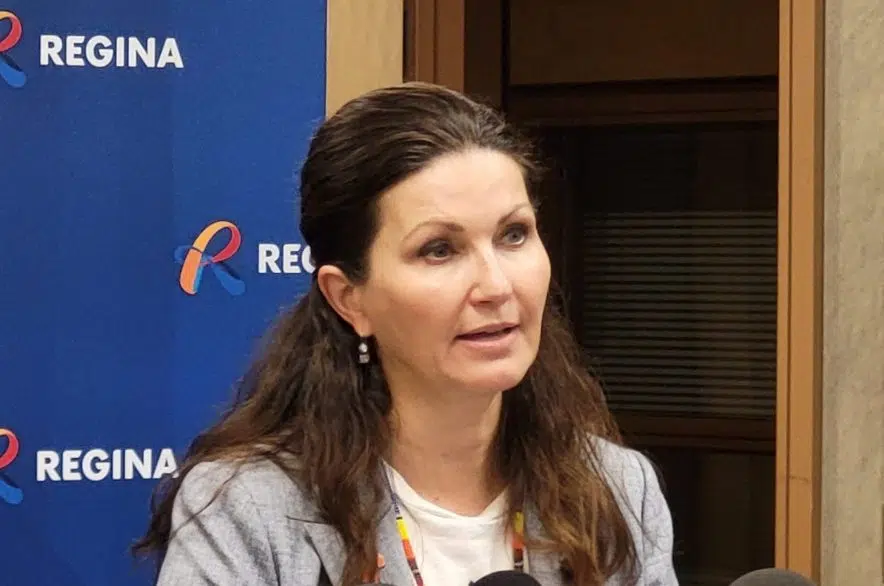Three overdose deaths in a 24-hour span — including one at the encampment in front of City Hall — had Regina Mayor Sandra Masters looking for a strategy to deal with addictions.
“Whatever we’re doing isn’t working and so we continue to work with levels of government (on) everything relating to addiction issues, health issues, and frankly, criminal issues for the supply and dealing of these drugs,” Masters said during a media conference Wednesday at City Hall.
According to statistics from the Regina Police Service, there have been 1,542 overdose occurrences in the city in 2023, with 226 of them attended by an officer.
The stats noted there have been 84 suspected overdose deaths between Jan. 1 and Wednesday, up from 71 in the same time frame in 2022.
Since July 1, there have been 12 suspected overdose deaths in the city. The police and Masters said three of those deaths had occurred since Tuesday morning — including the woman’s death at the encampment in front of City Hall.
While there have been suspected overdoses at the tent city, Masters said the death reported Wednesday was the first to her knowledge since the encampment popped up in June.
“(It was) not a matter of if, it was when it was going to happen,” Masters said.
The mayor began the media conference by offering her thoughts to the woman’s family.
“We wanted to be honoured to be here to extend our sincere condolences to the loved ones in the community of the woman who passed away this morning in the encampment at the City Hall courtyard,” Masters said.
She declined to provide any more information about the woman, but did say her next of kin had been notified.
Police addressed the recent rash of overdoses in a subsequent media release.
“The suspected overdose deaths are occurring across the city, with approximately half noted in the inner-city areas,” the release said. “The vast majority of victims are males in the 30-40 age range.
“There have been several incidents reported in which multiple doses of Naloxone (Narcan) have been required to counteract the effects of overdose and save a life.”
The camp in front of City Hall was erected as a response to the issue of homelessness in Regina. According to the city, the encampment now comprises 83 tents and provides shelter to anywhere between 45 and 60 people.
When Masters was asked if the city was doing everything it could to help address the problem of homelessness, she said yes.
“We know that substance use disorder is a complicating factor in being able to access shelter and housing,” Masters said. “We also know that there’s no clear, simple, one-size-fits-all solution to solving the challenges posed by it.”
Masters acknowledged the fact the city wouldn’t be able to take down the encampment without safely ensuring that people had a place to go.
“I think that’s what all of the organizations are working through right now, kind of the if/then scenarios, because if we have somewhere (where folks can go), that’s easy,” she said.
“If we don’t, how do we accommodate short-term shelter while we work through what to do with folks that don’t perhaps want shelter?”
Masters said with an increased level of homelessness in the city, some shelters have had to turn people away.
“I think that every community-based organization that we work with would suggest — not unlike (what) we would suggest — that there’s never enough money or time in order to deal with some of the issues,” she said.
“I think when we reach a capacity and then we have more folks come to the table, it is in some respects something that continues to grow.”
Masters touted supportive housing units, but also said many in the city are at capacity.
“We know that we need supportive housing and so the notion that we can put folks with deeply problematic substance use disorder into a home by themselves is simply not realistic,” she said. “It’s not safe, and it’s not something that we that can be executed on.”











